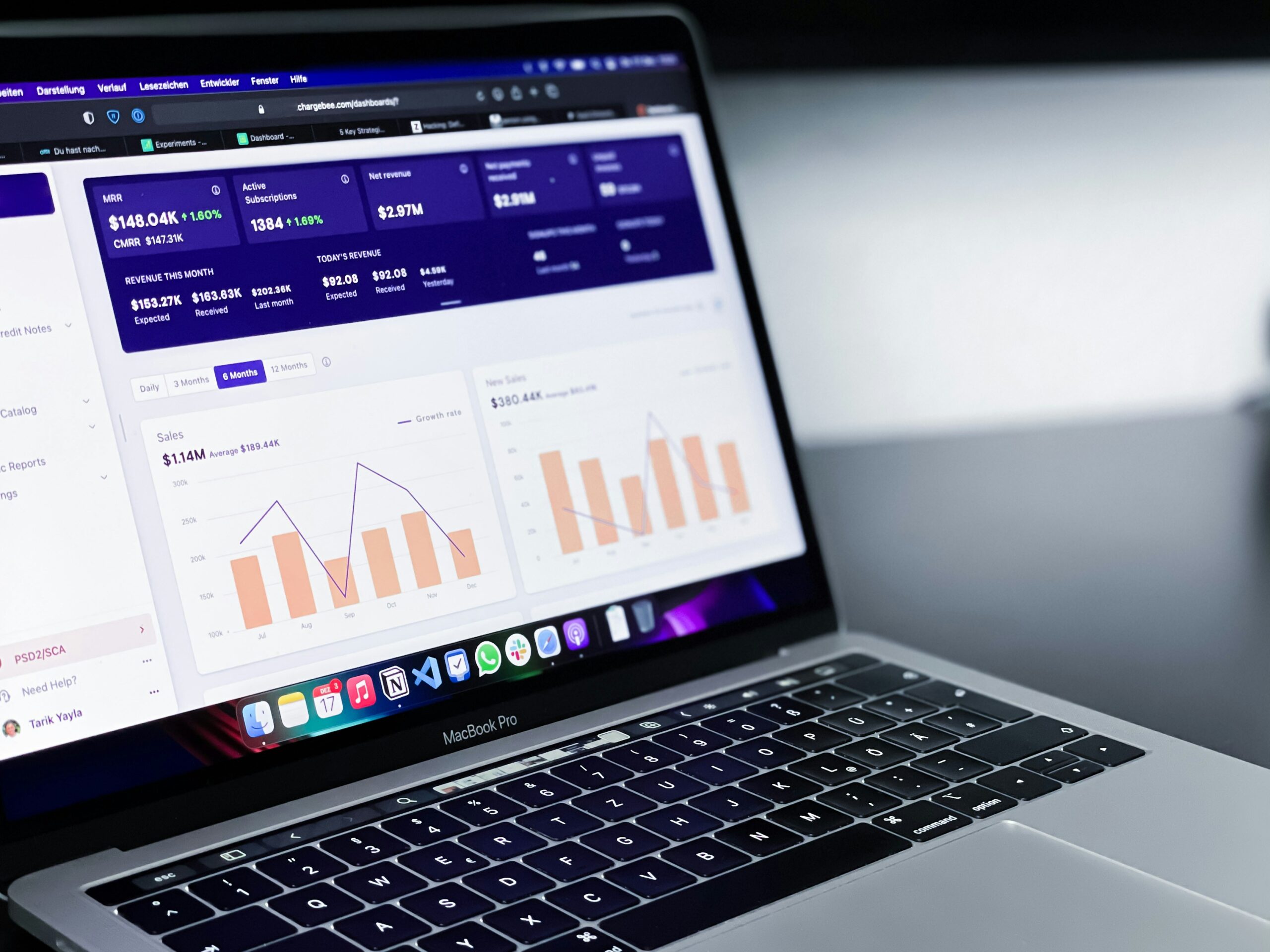Running a small business often involves challenges like managing customer relationships and streamlining sales processes. Did you know that CRM software can help with these issues? This article explores how CRM systems centralize customer information, refine sales operations, and strengthen marketing efforts. By understanding these benefits, readers will learn how to enhance customer connections, improve service delivery, and ultimately drive business success. Engage with this content to discover practical solutions for your customer management struggles and empower your business to thrive.
Key Takeaways
- Centralizing client information improves customer relationships and enhances personalized service
- CRM solutions streamline communication across various channels for better customer interaction tracking
- Accurate data within a CRM system supports informed decision-making and targeted marketing campaigns
- Automating sales tasks reduces workload and shortens the sales cycle for small businesses
- Consistent customer engagement fosters loyalty and improves overall customer satisfaction
Centralize Customer Information for Stronger Connections

Gathering all client details in one accessible place enables small businesses to enhance their relationships. Tracking every interaction across various communication channels helps identify client needs, while understanding customer histories allows for personalized service. Improving data accuracy leads to reliable insights, and CRM software features ensure the security of customer information, supporting overall efficiency and business process automation.
Gather All Client Details in One Accessible Place
Utilizing a customer relationship management (CRM) solution allows businesses to gather all client details in one accessible place, creating a solid foundation for customer success. By centralizing contact information, interaction history, and preferences, organizations can easily track and understand their customers’ needs. For startups seeking the best CRM for their growing business, a free CRM for startups can offer essential features that streamline processes and enhance personalized service, ultimately strengthening relationships.
Track Every Interaction Across Different Channels
Tracking every interaction across different channels is a key feature of effective CRM solutions that can significantly boost a small business’s ability to connect with customers. By utilizing CRM automation tools, businesses can streamline their communication efforts, ensuring they do not miss critical touchpoints. For those exploring options, a Zoho CRM review highlights how this system facilitates tracking interactions through email, social media, and direct calls, creating a comprehensive ecosystem of customer behavior that enhances service and fosters loyalty.
- Centralize client information for easy access.
- Track interactions across multiple communication channels.
- Utilize CRM automation to streamline processes.
- Enhance customer service by understanding customer histories.
Understand Customer Histories for Personalized Service
Understanding customer histories is essential for delivering personalized service, and modern business CRM software makes this easy and accessible. By utilizing features like drag and drop functionality, users can quickly organize and access crucial customer data, allowing for tailored interactions that resonate with individual needs. Incorporating tools such as a dialer within the CRM can enhance customer service by facilitating direct communication, ensuring that every engagement feels thoughtful and relevant to the customer’s journey.
Improve Data Accuracy for Reliable Insights
Improving data accuracy within a customer relationship management (CRM) system is essential for generating reliable insights to drive business growth. By utilizing CRM software, small businesses gain valuable intelligence that enhances their sales management efforts and supports upselling strategies. For instance, accurate customer data allows businesses to tailor social media marketing campaigns, ensuring content resonates with the right audience and strengthens overall relationships.
| Key Benefit | Description |
|---|---|
| Better Intelligence | Accurate data leads to informed decision-making and enhanced insights. |
| Sales Management | Streamlined processes enable effective tracking of sales activities. |
| Upselling Opportunities | Understanding customer preferences fosters tailored upselling strategies. |
| Social Media Insights | Data accuracy supports targeted marketing campaigns across social platforms. |
| Free CRM Software | Many free CRM options offer essential tools to maintain data accuracy. |
Secure Customer Data With CRM Software Features
Ensuring customer data security is vital for small businesses using CRM software, as this protects sensitive information and builds client trust. Features in platforms like Salesforce Starter and Zendesk provide robust security measures, including reliable server protection and usability enhancements that mitigate risks. By implementing these systems, businesses can manage invoices and customer interactions securely, fostering a safer environment for client engagement.
| CRM Software Feature | Benefits |
|---|---|
| Server Protection | Safeguards sensitive customer information. |
| Usability Enhancements | Makes security features easy to navigate. |
| Invoice Management | Streamlines financial transactions securely. |
| Integration Options | Allows for cooperation with other tools like Zendesk. |
| Robust Reporting | Provides insights while protecting user data. |
Refine Sales Operations With CRM Tool

Managing leads effectively from capture to conversion is vital for small businesses aiming for success. CRM tools simplify this process by visualizing sales pipelines for better forecasting, automating repetitive sales tasks to save time, and shortening the sales cycle with organized processes. Monitoring sales performance using clear metrics ensures continuous improvement, making features like encryption, document management systems, and integrations with platforms like Keap and Zapier essential for streamlined operations.
Manage Leads Effectively From Capture to Conversion
Effectively managing leads from capture to conversion is crucial for small businesses seeking to enhance productivity. By employing CRM software, organizations can track leads seamlessly across various platforms, including telephone inquiries and mobile devices. This streamlining eliminates confusion and allows businesses to prioritize follow-ups, ensuring no potential client falls through the cracks.
| CRM Software Features | Benefits |
|---|---|
| Lead Tracking | Centralizes lead information for easy access and management. |
| Automated Follow-ups | Saves time and boosts response rates. |
| Mobile Accessibility | Allows for lead management on-the-go. |
| Integration with Communication Tools | Enhances response management through multiple channels. |
| Fee Management Tools | Streamlines invoicing and payment processes. |
Visualize Your Sales Pipeline for Better Forecasting
Visualizing the sales pipeline is essential for small businesses aiming for effective forecasting. Utilizing CRM tools with kanban features can provide a clear overview of each stage, enhancing collaboration among team members. With the best free CRM systems, companies can also integrate email marketing to engage leads more efficiently, ensuring that all interactions are captured and analyzed for better strategic decisions.
Automate Repetitive Sales Tasks to Save Time
Automating repetitive sales tasks through CRM software, like SugarCRM, significantly enhances operational efficiency for small businesses. With features that streamline accounting processes and track every stage of the sales pipeline, teams can focus more on customer engagement rather than manual data entry. By integrating CRM tools with platforms like Desk, businesses can ensure that follow-ups and communication are timely, fostering a more organized approach to managing leads and driving conversions.
Shorten the Sales Cycle With Organized Processes
Organized processes play a critical role in shortening the sales cycle for small businesses. By integrating tools like HubSpot CRM or Pipedrive CRM, businesses can streamline their workflows and keep track of client interactions in one place. This not only enhances data analysis capabilities but also ensures that teams can act quickly on insights, minimizing delays in follow-ups and improving overall efficiency.
Monitor Sales Performance With Clear Metrics
Using SMB CRM software enables small businesses to monitor sales performance effectively with clear metrics. By integrating telephony features, these systems allow teams to track calls, evaluate engagement levels, and assess customer support interactions in real-time. For startups, selecting the best CRM tools for startups is key, as it provides valuable insights into sales trends and ensures data-driven decision-making that can enhance overall business success.
Strengthen Marketing Campaigns Using Customer Data

Segmenting audiences for targeted marketing messages allows small businesses to connect more effectively with their clients. CRM software for startups enables easy management of email marketing efforts and facilitates tracking campaign performance to refine strategies. Additionally, aligning sales and marketing teams around shared goals and accurately calculating marketing return on investment fosters collaboration, streamlined task management, and enhances overall campaign effectiveness.
Segment Audiences for Targeted Marketing Messages
Segmenting audiences for targeted marketing messages can significantly increase revenue and build stronger customer relationships. By utilizing a CRM database, small businesses can analyze client data and identify unique segments based on preferences and behaviors. This targeted approach not only enhances project management by allowing teams to focus on specific audience needs but also helps deliver relevant messages that resonate with customers, driving engagement and conversions.
- Utilizing CRM databases for audience analysis.
- Identifying segments based on customer preferences.
- Enhancing project management through targeted approaches.
- Increasing revenue by delivering relevant messages.
Manage Email Marketing Efforts Within the CRM System
Managing email marketing efforts within a CRM system allows small businesses to effectively enhance customer engagement and satisfaction. By utilizing features that track user interactions, businesses can tailor campaigns that meet specific needs, thus improving their communication curve. Moreover, integrating chatbots within the CRM can facilitate real-time assistance, ensuring that inquiries are addressed promptly, thereby fostering stronger connections and improving overall customer experiences.
Track Campaign Performance and Adjust Strategies
Tracking campaign performance is essential for optimizing marketing efforts in any small business. Using a CRM for small enterprises allows entrepreneurs to analyze key metrics and adjust strategies based on real-time data. For instance, those utilizing the best CRM for solopreneurs might find that integrating tools like an auto dialer enhances outreach efforts, ensuring that they maintain client engagement and fulfill contract obligations efficiently, even during a steep learning curve.
Align Sales and Marketing Teams Around Shared Goals
Aligning sales and marketing teams around shared goals is vital for maximizing the effectiveness of campaigns and driving growth. Utilizing a simple CRM like Monday CRM can facilitate communication and collaboration between teams, ensuring everyone is on the same page regarding lead generation strategies. By integrating a sales CRM interface that highlights common objectives, businesses can effectively track progress and make data-driven decisions, ultimately enhancing customer engagement and satisfaction.
Calculate Marketing Return on Investment Accurately
Accurately calculating marketing return on investment (ROI) is vital for small businesses to assess the effectiveness of their campaigns. By utilizing a CRM platform that integrates touchpoint tracking, businesses can gather essential data on customer interactions and conversions. This software as a service not only enhances data security but also provides scalability, ensuring that even as a business grows, it can continuously monitor financial returns and adjust strategies accordingly for optimal success.
Improve Customer Service and Support Delivery

Using small business CRM software enables organizations to respond faster to customer inquiries and issues while maintaining consistent communication. Equipped with client information in a single source of truth, support teams can build long-term customer loyalty through better care and systematically collect feedback for service refinement. This approach guides businesses in utilizing analytics effectively, ensuring they adapt strategies for improved performance and satisfaction.
Respond Faster to Customer Inquiries and Issues
Responding to customer inquiries and issues quickly is paramount for small businesses aiming to enhance customer service and support delivery. CRM software empowers teams to access comprehensive client information instantly, allowing them to provide informed responses and resolve problems effectively. This capability not only satisfies customer needs but also fosters loyalty, encouraging repeat business and strengthening relationships:
| Key Aspect | Benefit |
|---|---|
| Instant Access to Information | Supports quick responses to client inquiries. |
| Comprehensive Customer Profiles | Enables tailored solutions based on past interactions. |
| Improved Issue Resolution | Enhances customer satisfaction through timely support. |
| Increased Loyalty | Encourages repeat business and positive referrals. |
| Effective Communication | Facilitates smoother interactions with clients. |
Maintain Consistent Communication With Clients
Maintaining consistent communication with clients is essential for building strong relationships and ensuring customer satisfaction. Using CRM software, small businesses can automate reminders for follow-ups and personalized messages, allowing them to stay connected without overwhelming their teams. This consistent engagement helps address client inquiries promptly, establishing a sense of reliability and trust that encourages repeat business and loyalty.
Build Long-Term Customer Loyalty Through Better Care
Building long-term customer loyalty requires a commitment to better care, and CRM software plays a crucial role in this process. By consolidating client information, businesses can respond more effectively to customer needs and preferences, leading to a more personalized service experience. This attention to individual client concerns not only addresses inquiries promptly but also fosters trust, encouraging clients to return for future services.
| Key Aspect | Benefit |
|---|---|
| Personalized Service | Enhances client experience by addressing specific needs. |
| Quick Responses | Increases customer satisfaction through timely support. |
| Trust Building | Encourages loyalty and repeat business. |
| Informative Insights | Allows for tailored marketing and service offers. |
| Feedback Collection | Guides continuous improvement in service delivery. |
Collect Feedback Systematically for Service Refinement
Systematically collecting feedback through CRM software enables small businesses to refine their services effectively. This process ensures that client opinions and experiences inform future improvements, allowing organizations to adapt their offerings to meet customer needs better. Utilizing features such as automated surveys or feedback forms can streamline this collection process, helping businesses gain actionable insights that lead to enhanced customer satisfaction and loyalty.
| Feedback Method | Benefits |
|---|---|
| Automated Surveys | Streamlines feedback collection for timely insights. |
| Follow-up Calls | Provides direct engagement for deeper understanding. |
| Feedback Forms | Encourages structured responses for clear analysis. |
| Service Reviews | Offers public insights to inform marketing strategies. |
| Client Interviews | Facilitates in-depth feedback for service enhancement. |
Equip Support Teams With Necessary Client Information
Equipping support teams with necessary client information is fundamental to enhancing customer service and support delivery. When CRM software centralizes client data, support staff can access a comprehensive view of customer interaction history, preferences, and past issues, enabling them to respond effectively and efficiently. This streamlined access to information not only improves the speed of response but also fosters trust and loyalty, as customers feel understood and valued by knowledgeable representatives.
Foster Better Teamwork and Internal Communication

CRM software fosters better teamwork and internal communication by providing shared access to up-to-date customer information, allowing team members to collaborate seamlessly. It enables assignment of tasks and tracking of progress collectively, reducing information silos between departments. Standardizing workflows ensures consistent operations, enhancing efficiency and clarity across the organization.
Provide Shared Access to Up-to-Date Customer Information
Providing shared access to up-to-date customer information is crucial for small businesses aiming to enhance teamwork and internal communication. With CRM software, team members can easily access comprehensive client profiles that include interaction history and specific preferences. This centralized information allows different departments, such as sales and support, to collaborate effectively, ensuring every employee is on the same page regarding customer needs and improving overall service delivery.
Assign Tasks and Track Progress Collaboratively
Assigning tasks and tracking progress collaboratively using CRM software enhances team collaboration and accountability. When small businesses implement these tools, they can clearly assign responsibilities and deadlines to team members, ensuring everyone is aware of their roles in projects. This transparency encourages team members to communicate openly, share updates, and address issues as they arise, ultimately fostering a culture of cooperation that drives business success.
Reduce Information Silos Between Departments
Reducing information silos between departments is key for small businesses striving for effective collaboration. CRM software centralizes client data, allowing teams in sales, marketing, and support to access the same information seamlessly. This shared access not only eliminates miscommunication but also enables coordinated efforts, resulting in a more unified approach to customer engagement and service.
| Benefit | Description |
|---|---|
| Improved Collaboration | Departments can share insights and strategies more effectively. |
| Streamlined Communication | Reduces misunderstandings and enhances teamwork. |
| Consistent Customer Experience | Clients receive uniform information across all touchpoints. |
| Increased Efficiency | Less time wasted on searching for data or clarifying gaps. |
| Enhanced Problem-Solving | Interdepartmental information sharing drives innovative solutions. |
Standardize Workflows for Consistent Operations
Standardizing workflows within CRM software plays a pivotal role in enhancing small business operations. By creating uniform processes, teams can ensure that every member follows the same procedures, reducing errors and misunderstandings. This consistency not only streamlines tasks but also fosters better collaboration, as team members clearly understand their respective roles and responsibilities, leading to improved overall efficiency and customer satisfaction.
Make Informed Business Decisions With CRM Analytics

CRM analytics enable small businesses to generate detailed reports on sales, marketing, and service activities, providing essential insights for decision-making. Analyzing data helps identify trends and opportunities, forecasts future growth, and pinpoints effective strategies. By leveraging CRM insights, businesses can guide their strategies effectively, ensuring that their efforts align with overall goals and maximize potential for success.
Generate Reports on Sales, Marketing, and Service Activities
Generating reports on sales, marketing, and service activities through CRM software equips small businesses with essential insights for informed decision-making. By analyzing data from these reports, businesses can identify trends, assess performance, and adjust strategies accordingly. For example, tracking sales metrics helps organizations pinpoint high-performing products or services, enabling them to allocate resources efficiently and focus on growth opportunities:
- Identify top-selling products to maximize inventory and marketing focus.
- Evaluate marketing campaign effectiveness to allocate budgets wisely.
- Assess service activity to improve customer support and satisfaction.
Identify Trends and Opportunities Through Data Analysis
Data analysis is a powerful tool for small businesses seeking to identify trends and opportunities that can enhance their performance. By leveraging CRM analytics, organizations can extract valuable insights from customer interactions, sales patterns, and marketing results. For instance, businesses can analyze peak sales periods or evaluate the success of specific campaigns, allowing them to focus their efforts on strategies that yield the highest return. This approach not only aids in effective decision-making but also empowers businesses to adapt quickly to market demands, positioning themselves for sustained growth.
| Data Analysis Focus | Benefits |
|---|---|
| Customer Interactions | Identifies preferences and pain points for personalized offerings. |
| Sales Patterns | Highlights peak periods to optimize inventory and staffing. |
| Marketing Results | Measures the success of campaigns, guiding budget allocation. |
Forecast Future Growth Based on Performance Data
Forecasting future growth based on performance data allows small businesses to make strategic decisions with confidence. By analyzing historical sales trends, businesses can identify emerging opportunities and adjust their operations accordingly. For example, a company could recognize seasonal sales peaks, enabling them to optimize inventory and staffing during high-demand periods, thus enhancing overall efficiency.
- Utilize historical sales trends for insights.
- Identify emerging opportunities for growth.
- Adjust operations based on data-driven insights.
- Optimize inventory and staffing to meet demand.
Understand Which Strategies Yield the Best Results
Understanding which strategies yield the best results is vital for small businesses looking to optimize their operations and drive success. By leveraging CRM analytics, organizations can evaluate the effectiveness of various marketing campaigns and sales techniques, clarifying what resonates with customers. For instance, businesses can track customer engagement metrics to discern which marketing messages attract the most interest, enabling them to refine their approaches and maximize returns.
| Strategy | Outcome |
|---|---|
| Email Marketing Campaigns | Increased open rates lead to higher conversions. |
| Social Media Engagement | Improved brand awareness and customer loyalty. |
| Targeted Promotions | Higher sales during specific campaigns. |
| Feedback Collection | Enhanced customer satisfaction through tailored offerings. |
Use CRM Insights to Guide Small Business Strategy
Using CRM insights to guide small business strategy enables organizations to make data-driven decisions that enhance overall performance. By analyzing customer behavior, sales trends, and marketing campaign effectiveness, businesses can identify what works and refine their approaches accordingly. This strategic use of data not only optimizes resource allocation but also ensures that efforts align with customer needs, ultimately fostering loyalty and driving growth.
Conclusion
CRM software is essential for transforming small business’ success by centralizing customer information, improving relationships, and streamlining operations. By enabling effective lead management and automating marketing tasks, businesses can save time and focus on building lasting connections with clients. Analytics derived from CRM systems allow for data-driven decisions, ensuring that strategies align with customer needs and drive growth. Ultimately, embracing CRM technology equips small businesses with the tools to enhance service delivery, foster collaboration, and achieve sustainable success.






